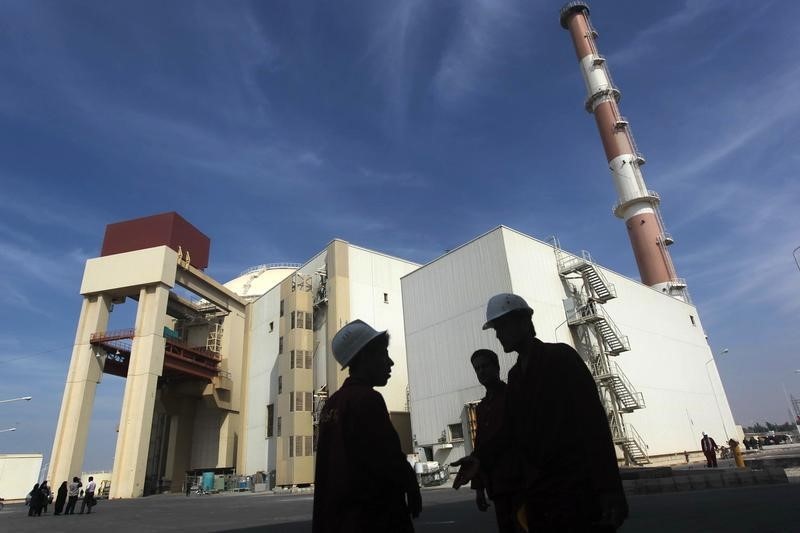By Fredrik Dahl
VIENNA (Reuters) - Iran will refrain from expanding its testing of more efficient models of the machine used to refine uranium under an extended nuclear agreement with six world powers, according to U.S. experts with knowledge of the issue.
Iran's development of advanced centrifuges is sensitive because, if successful, it could enable it to produce potential nuclear bomb material at a rate several times that of the decades-old version now in use. Iran says it is only enriching uranium to fuel nuclear power plants.
An interim accord last year between Iran and the United States, France, Germany, Britain, China and Russia said Tehran could continue its "current enrichment R&D (research and development) practices", implying they should not be stepped up.
But a U.N. atomic agency report in November said Iran had intermittently been feeding one of several new models under development with uranium gas, prompting a debate among analysts whether this may have been a deal violation.
Iran said there was no breach and that it would continue with its centrifuge research.
In what may be an attempt to clarify the issue and close any potential loopholes, a U.S. think-tank said Iran would effectively be prevented from "moving to the next level of development" of its new centrifuges, under a seven-month extension of the preliminary deal agreed last week.
The Arms Control Association's Iran expert did not say where the information came from. But another Washington-based analyst cited the same text and said it was based on "briefing materials" shared by officials familiar with the negotiations.
"The new restrictions more fully implement the spirit of Iran's commitment ... to not engage in any R&D activities that could advance its nuclear programme during the course of this interim agreement," the second analyst said.
That accord will now run until mid-2015 after Iran and the six global powers failed to meet a Nov. 24 deadline for reaching a final settlement of the 12-year dispute over Islamic Republic's nuclear programme.

During this period, the U.S. experts said, Iran can not feed a centrifuge known as the IR-5 with uranium gas and also not install the so-called IR-8 at an R&D site. They are among centrifuges that Iran has been seeking to develop to replace the erratic IR-1 machine it now operates.
(Editing by Andrew Heavens)